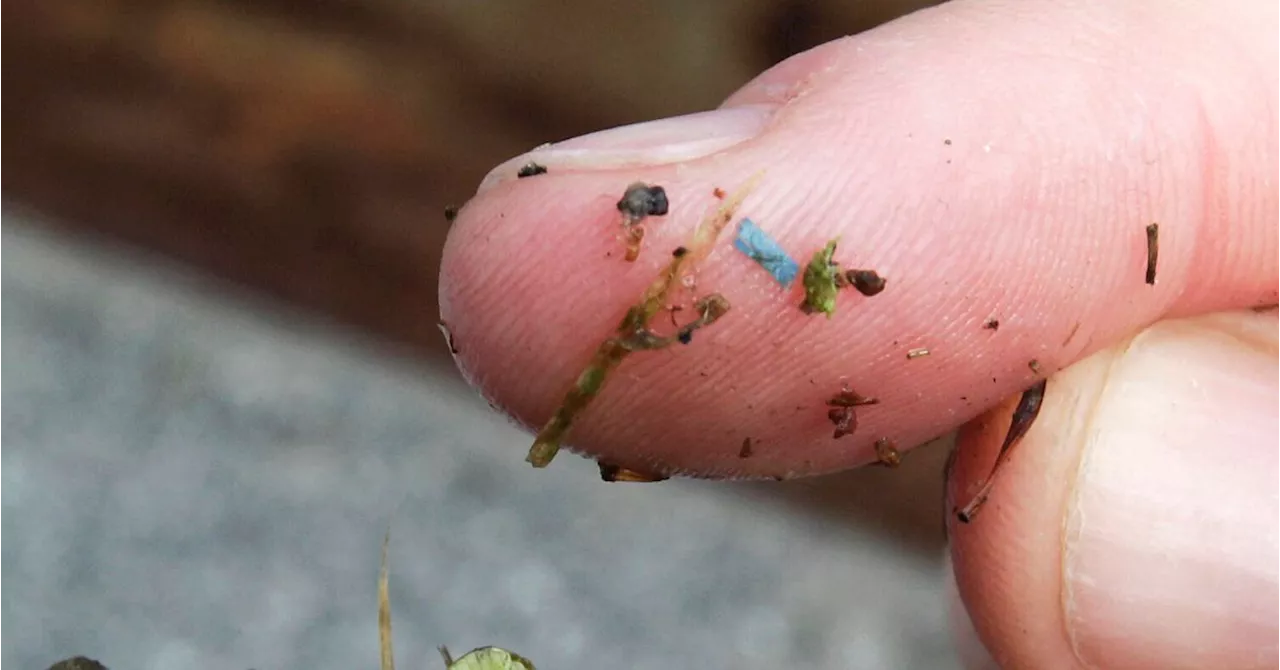A new study reveals alarming levels of microplastics in the human brain, raising concerns about their potential link to neurological diseases. The study, conducted by researchers at the University of New Mexico Health Sciences, found that plastic accumulation in the brain has surged by 50 percent over the past eight years, with dementia patients showing up to 10 times the plastic levels compared to others.
A recent study has revealed alarming levels of microplastics in the human brain, accumulating over time to potentially reach the equivalent of a plastic spoon. This discovery, conducted by researchers at the University of New Mexico Health Sciences (UNM), raises serious concerns about the potential link between microplastic accumulation and neurological diseases .
The study found that plastic accumulation in the brain has increased by 50 percent in the last eight years, with dementia patients exhibiting up to 10 times higher plastic levels compared to individuals without dementia. The researchers, led by toxicologist Matthew Campen, are exploring various mechanisms by which these microplastics might be impacting brain health. One hypothesis is that the plastics obstruct blood flow in the capillaries, hindering the delivery of essential nutrients and oxygen to brain cells. Another possibility is that nanoplastics, which are even tinier than microplastics, interfere with the connections between axons, the nerve fibers responsible for transmitting signals within the brain. Additionally, the researchers speculate that these plastic particles could act as a catalyst for protein aggregation, a hallmark of neurodegenerative diseases like dementia.While the exact impact of microplastics on the brain remains unclear, the findings are deeply concerning. Microplastics are ubiquitous, found in our food, drinking water, and even the air we breathe. These tiny plastic particles, originating from the breakdown of larger plastics, are small enough to potentially cross the blood-brain barrier, a protective shield that usually prevents harmful substances from entering the brain. The UNM study analyzed brain tissue samples from deceased individuals, comparing those collected in 2016 with samples from 2024. They discovered a significant surge in microplastic concentrations in the newer samples, regardless of the individual's age, sex, race, ethnicity, or cause of death. The average concentration found in the brains of individuals in the 2024 samples was 4,800 micrograms per gram, equivalent to the weight of a standard plastic spoon
Microplastics Brain Neurological Diseases Dementia Plastic Pollution
Canada Latest News, Canada Headlines
Similar News:You can also read news stories similar to this one that we have collected from other news sources.
 New Study Finds Big Increase In Microplastics Found In Human BrainsNick Visser is a senior reporter on HuffPost’s breaking news team, covering the environment, U.S. politics and world news. Originally based in New York, he now lives in Sydney.
New Study Finds Big Increase In Microplastics Found In Human BrainsNick Visser is a senior reporter on HuffPost’s breaking news team, covering the environment, U.S. politics and world news. Originally based in New York, he now lives in Sydney.
Read more »
 Four Charged in Human Smuggling Case After Eight People Found Hidden in VehicleEight individuals were discovered concealed in a vehicle during a traffic stop orchestrated by OPP and RCMP officers near the U.S. border in Cornwall, Ontario. Four suspects, including the driver and a passenger, along with two others apprehended in separate vehicles, face charges of conspiracy to violate U.S. law.
Four Charged in Human Smuggling Case After Eight People Found Hidden in VehicleEight individuals were discovered concealed in a vehicle during a traffic stop orchestrated by OPP and RCMP officers near the U.S. border in Cornwall, Ontario. Four suspects, including the driver and a passenger, along with two others apprehended in separate vehicles, face charges of conspiracy to violate U.S. law.
Read more »
 Health Canada says synthetic red food dye banned by FDA poses no human risk in CanadaTORONTO — Health Canada says a synthetic dye newly banned from the U.S. food supply does not pose a health risk to the general population in Canada. The federal agency said it won’t echo a ban by the U.S.
Health Canada says synthetic red food dye banned by FDA poses no human risk in CanadaTORONTO — Health Canada says a synthetic dye newly banned from the U.S. food supply does not pose a health risk to the general population in Canada. The federal agency said it won’t echo a ban by the U.S.
Read more »
 Human remains found in Sarnia identified as missing man, three suspects charged with murderPolice in Sarnia, Ontario have identified human remains found south of the city last week as Bradley James Ogilvie, a 41-year-old man who was reported missing in November 2023. Three suspects, two 45-year-olds from Aamjiwnaang First Nation and a 47-year-old from Sarnia, remain in custody facing first-degree murder charges.
Human remains found in Sarnia identified as missing man, three suspects charged with murderPolice in Sarnia, Ontario have identified human remains found south of the city last week as Bradley James Ogilvie, a 41-year-old man who was reported missing in November 2023. Three suspects, two 45-year-olds from Aamjiwnaang First Nation and a 47-year-old from Sarnia, remain in custody facing first-degree murder charges.
Read more »
 Fossils found in China may add a new branch to the human family treeSkull fragments, teeth and jaws found at different sites in China have led some researchers to believe they have found the remains of a previously unknown ancient human relative.
Fossils found in China may add a new branch to the human family treeSkull fragments, teeth and jaws found at different sites in China have led some researchers to believe they have found the remains of a previously unknown ancient human relative.
Read more »
 ‘Worrisome’: B.C. doctor reflects on weeks with first human avian flu caseCase of B.C. 13-year-old raises questions about the likelihood of human-to-human transmission
‘Worrisome’: B.C. doctor reflects on weeks with first human avian flu caseCase of B.C. 13-year-old raises questions about the likelihood of human-to-human transmission
Read more »
